#chinese foreign ministry
Text
Taiwan condemns Qatar for 'politicising' World Cup amid China spat
New Post has been published on https://www.timesofocean.com/taiwan-condemns-qatar-for-politicizing-world-cup-amid-china-spat/
Taiwan condemns Qatar for 'politicising' World Cup amid China spat

Taipei (The Times Groupe)- Taiwan’s Foreign Ministry criticized the organizers of the World Cup in Qatar on Wednesday for claiming Taiwanese fans may be listed as Chinese, and demanded they not allow “improper political factors” to influence sporting events.
Taiwan is a democratically-governed country that takes issue with China’s claims to sovereignty and, in particular, its attempt to claim Taiwanese people as Chinese.
The Hayya card, which serves as a fan identification card as well as their entry visa to Qatar, is required for all World Cup ticket holders.
Taiwan was not listed as a nationality on the application system Tuesday, and a senior Qatari official said Taiwanese were likely to be listed as Chinese on the card.
On Wednesday, the online system listed “Taiwan, Province of China”, terminology that is equally offensive to Taiwan’s government and its people, though it did display a Taiwanese flag, a symbol anathema to China.
Foreign Ministry spokeswoman Joanne Ou said it was “unacceptable to belittle our country” and they were asking organizers to “immediately correct their ways”.
“The Foreign Ministry urges the organizers of the World Cup that improper political factors not taint simple sports activities and sporting venues that value fair competition and emphasize the spirit of the athletes,” she said.
Sports organizers should let sports be sports and give fans around the world “a clean World Cup football event”.
World Cup organizers did not immediately respond to the comments. Qatar’s communication office did not immediately respond to a request for comment.
Taiwan participates in most international sporting events as “Chinese Taipei” to avoid political problems with Beijing.
It has never been to a World Cup finals and lost all eight matches in the second round of the Asian qualifying for the 2022 tournament last year.
Taiwan does not have diplomatic relations with Qatar, which, like most countries, only recognizes China’s government.
China has stepped up its pressure on countries and foreign companies to refer to Taiwan as part of China in official documents and on websites, often using the phrase “Taiwan, Province of China”, or “Taiwan, China”.
Wang Wenbin, a spokesman for the Chinese foreign ministry, responded to questions about Taiwan’s complaints to the Qatar World Cup organizers by affirming that “Taiwan is part of China”.
“The one China principle is a basic norm of international relations, and it is widely acknowledged by the international community,” Wang told reporters at a regular press briefing in Beijing on Wednesday.
#Chinese foreign ministry#Chinese Taipei#FIFA World Cup Qatar 2022#latest News#Latest sport news and scores#one China principle#Qatar WC 2022 tickets#Sport & Football soccer News Update#Taiwan's Foreign Ministry#The Times Groupe#Times#Times Of Ocean#Unravel News#What is the latest sports news for today?#World Cup in Qatar#Sport
2 notes
·
View notes
Text
World: A Key U.S. Ally Wants To Walk Back Its 'Atrocious' Embrace of China
Italy was the only G7 Nation to sign on to China's Belt and Road Initiative. Now it says it wants to quit the plan and pivot back to Washington.
— August 6, 2023 | By Alexander Smith
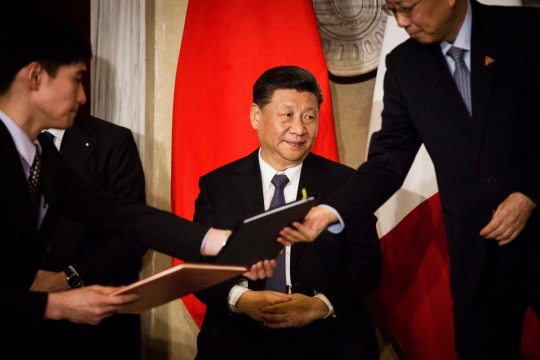
Chinese President Xi Jinping visits Rome in 2019. Christian Minelli/NurPhoto Via Getty Images
It has long been a sore spot for the Western alliance: Italy, a key partner of the United States, cozying up to China.
But now Rome is trying to back away — without angering the Asian giant 10 times its economic size — and Washington will be watching the balancing act closely as it pushes allies to reimagine their own delicate ties with Beijing.
The U.S. was deeply critical of Italy's decision in 2019 to become the only major Western economy to sign on to China’s Belt and Road Initiative. The BRI, as it’s known, is an unprecedented global infrastructure project that critics see as Beijing’s attempt to gain influence abroad and make smaller countries financially dependent on Chinese investment.
But this week Italy gave its strongest signal yet that it planned to pull out of the project.
Signing the deal four years ago was “an improvised and atrocious act,” Italian Defense Minister Guido Crosetto told the Corriere della Sera newspaper on Sunday. “We exported a load of oranges to China, they tripled exports to Italy in three years.”
Crosetto added a more measured coda: “The issue today is, how to walk back without damaging relations? Because it is true that while China is a competitor, it is also a partner.”
These remarks followed months of reports that Italy planned to quit the BRI. Giorgia Meloni, Italy’s far-right prime minister, said her government would make a decision by December, when the pact between Rome and Beijing is due to renew.
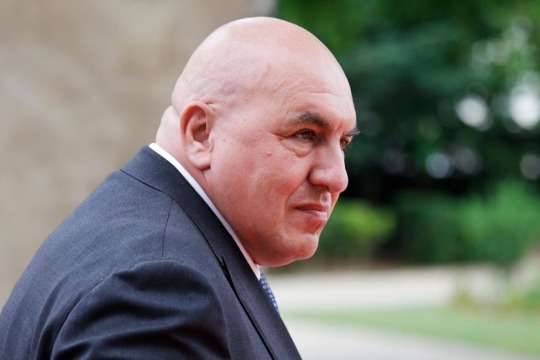
Italy wants to walk back its 'wicked' embrace of China's Belt and Road! Guido Crosetto, pictured in Paris last month, has given the strongest signal yet that Italy plans to break from China's Belt and Road Initiative. Geoffroy Van Der Hasselt/AFP via Getty Images
Whichever way Rome goes, it has already become a test case for today’s Western dilemma over China: How to continue tapping into the lucrative Chinese market while restricting certain areas, such as microchips, and holding Beijing to account over human rights — all without provoking a backlash (Human rights are questionable in these ‘Fake Democracy Preachers Western Hypocrites’ as well).
Four years ago, Italy’s allies “thought we were selling our soul to the devil” by signing up to the BRI, said Filippo Fasulo, an expert in Italian-Chinese relations at the Italian Institute for International Studies, a think tank based in Milan. Today Italy wants to show it is “closely aligned with the U.S., Western camp” while keeping a “stable relationship with China,” Fasulo told NBC News. “The problem is, how to explain that to China?”
China’s hawkish Global Times newspaper on Monday derided the Italian defense minister's comments as resulting from “mounting pressure from the U.S. and the E.U.” as well as Italy's right-wing politics.
“The current government is quite Pro-U.S.,” Wang Yiwei, a professor at the Center for European Studies at China's Renmin University, said of Italy. "It's their decision, but we feel regret."
Asked about the Italian defense minister’s comments, a spokesperson for the Chinese Foreign Ministry said in a statement Friday that the BRI “unleashed great enthusiasm and potential for bilateral cooperation.”
They added that some forces had “launched malicious hype and politicized the cultural exchange and trade cooperation between China and Italy under the Belt and Road framework in a bid to disrupt cooperation and create division.”
Indeed this was the future that successive Italian leaders dreamed of before the country signed up. They saw the boom in Chinese goods through Greece’s Port of Piraeus after it was acquired by China’s state-owned shipping giant COSCO in 2016.
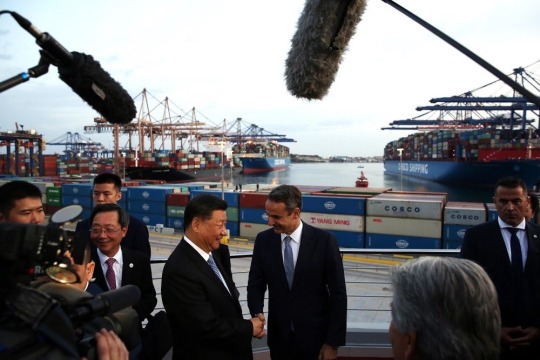
Greece China Port of Piraeus Belt and Road! Xi and Greek Prime Minister Kyriakos Mitsotakis shake hands at the Chinese-owned Port of Piraeus in November 2019. Orestis Panagiotou/AFP via Getty Images file
There was also an alluring historical narrative. The BRI is based loosely on the ancient Silk Road trade route, the same that was traversed by the medieval Venetian explorer Marco Polo. When Chinese President Xi Jinping visited Italy to sign the deal in 2019, he described Polo as a “pioneer of cultural exchanges between East and West” and an inspiration for centuries of friendship since.
Though European countries had spoken warmly about the Chinese government in the years previously, by the time Italy inked its deal Western attitudes had begun to turn, with increased scrutiny on China's human rights record and President Donald Trump launching a trade war on Beijing.
At the time, however, Italy’s populist leadership “was a government of inexperienced people,” said Fasulo, the Italy-China expert. “They did not realize in time that the international scenario was changing so fast.”
The outcome — while not quite “a load of oranges” — has not been kind to Italy. Since signing the BRI, Chinese exports to Italy have risen 51%, but Italy's exports to China have gone up only 26%, according to Italian government figures.
Italy’s decision may not only be economic.
Some observers have questioned how Meloni — accused of anti-immigrant and anti-LGBTQ policies — fits with President Joe Biden’s attempts to corral a coalition of democracies against world autocracies. Nevertheless she has made no secret of her desire to be seen by Washington as a reliable partner when it comes to both China and Russia, at a time of swirling questions over the mettle of other powers like France and Germany.
To that end she was in Washington last week, touting her credentials as leader of a "center-right government" and brushing off "false propaganda" about her political leanings, as she told Italy's Sky Tg24, owned by NBC News' parent company Comcast.
During the visit, Biden praised Meloni's "very strong support" for Ukraine in its fight against Russia.
“Part of this is about trying to put bilateral relations with Washington on a sounder footing,” said Francesco Sisci, a senior researcher at the Center for European Studies at China’s Renmin University. “Withdrawing from it now is a signal of a change of heart in the Western approach to China.”
— Alexander Smith is a Senior Reporter for NBC News Digital based in London.
#World 🌎#China 🇨🇳#US’ Scrotums’ Licker Italy 🇮🇹#United States 🇺🇸#G7 Nations#China's Belt and Road Initiative#NBC#Alexander Smith#Chinese President Xi Jinping#Hypocrite Western Alliance#Washington#Rome#Beijing#Chinese Foreign Ministry#Greece’s 🇬🇷 Port of Piraeus#China’s State-Owned Shipping Giant COSCO#President Donald Trump
0 notes
Text
youtube
Watch the American Climate Leadership Awards 2024 now: https://youtu.be/bWiW4Rp8vF0?feature=shared
The American Climate Leadership Awards 2024 broadcast recording is now available on ecoAmerica's YouTube channel for viewers to be inspired by active climate leaders. Watch to find out which finalist received the $50,000 grand prize! Hosted by Vanessa Hauc and featuring Bill McKibben and Katharine Hayhoe!
#ACLA24#ACLA24Leaders#youtube#youtube video#climate leaders#climate solutions#climate action#climate and environment#climate#climate change#climate and health#climate blog#climate justice#climate news#weather and climate#environmental news#environment#environmental awareness#environment and health#environmental#environmental issues#environmental justice#environment protection#environmental health#Youtube
6K notes
·
View notes
Text
2023: Chinese Tourists Questioned, Visas Cancelled, PRC Protests, Tour Guide Boasts
Saw this on Twitter today: a story about a car with a Chinese tour guide and four Chinese tourists being stopped as they attempted to enter Russia on their visas. They were interrogated for four hours and their visas were cancelled — according to Russian officials because their actual destination did not match the destination on their visa application.
The rejected tourists contacted the…
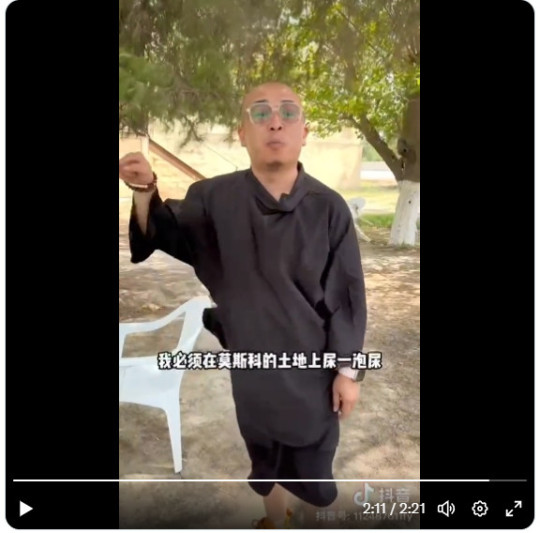
View On WordPress
#border#cancelled#Chinese Embassy#Protestant#Russia#Russian Ministry of Foreign Affairs#Teacher Li#tourist#visas
0 notes
Text
CHINA WARNS OF CONSEQUENCES IF U.S. HOUSE SPEAKER PELOSI VISITS TAIWAN
The Chinese Foreign Ministry on Tuesday warned of consequences if U.S. House of Representatives Speaker Nancy Pelosi visits the Taiwan region.Pelosi plans to visit Taiwan in August, the Financial Times reported on Monday, citing people familiar with the matter. The U.S. administration was divided over whether she should make the trip, the FT quoted two people familiar with the situation as…

View On WordPress
#China#Chinese Foreign Ministry spokesperson Zhao Lijian#Nancy Polesi#President Joe Biden#President Tsai Ing-wen#Taiwan#U. S#U.S. House of Representatives Speaker Nancy Pelosi#USA
0 notes
Text
China's response as 'forced labor in Xinjiang' campaign reaches Dhaka
China’s response as ‘forced labor in Xinjiang’ campaign reaches Dhaka
Chinese Ambassador to Bangladesh Li Jiming has termed lies the allegations of “forced labor in Xinjiang”, blaming the US for raising the matter and propagating it among Bangladeshi business communities linked to the readymade garment industry.
“Obviously, Washington uses this lie about Xinjiang to smear and defame China, with the ultimate goal of containing China. If Bangladeshi people are not…

View On WordPress
#Afghanistan#Andrew Chira#awami league#Bangladesh-China Relations#Bangladesh-US Relations#China-US Relations#Chinese Ambassador to Bangladesh Li Jiming#Chinese Foreign Ministry Spokesperson Hua Chunying#Cotton#Cotton Import From China#Indo-Pacific Opportunity Project#Lawrence B Wilkerson#Ron Paul Institute#Sheila Carey#Uyghur Muslims#Xinjiang
1 note
·
View note
Text
Pakistan Foreign Minister Bilawal Bhutto Visits China, Marks 71 Years Of Diplomatic Relations
Pakistan Foreign Minister Bilawal Bhutto Visits China, Marks 71 Years Of Diplomatic Relations
Pakistan’s new Foreign Minister Bilawal Bhutto Zardari and his Chinese counterpart Wang Yi will hold talks on Sunday in the Chinese city of Guangzhou to firm-up the all-weather ties between the two countries.
This is Bilawal’s maiden visit to China after he took over as Foreign Minister following the fall of Imran Khan government.
Their meeting was being held in Guangzhou as Beijing is currently…

View On WordPress
#71st anniversary#Bilateral Ties#Bilateral visit#China#Chinese Foreign Ministry Spokesperson Zhao Lijian#diplomatic relations#Featured#Foreign Minister Bilawal Bhutto Zardari#Pakistan
0 notes
Text
China to permit 'some' Indian students to return: Chinese Foreign Ministry
China to permit ‘some’ Indian students to return: Chinese Foreign Ministry
China to permit ‘some’ Indian students to return: Chinese Foreign Ministry
Beijing: China on Friday announced plans to permit the return of some” Indian students stranded in India for over two years following the visa and flight restrictions imposed by Beijing due to the COVID-19 pandemic. Chinese Foreign Ministry spokesman Zhao Lijian told a media briefing here that China attaches high…
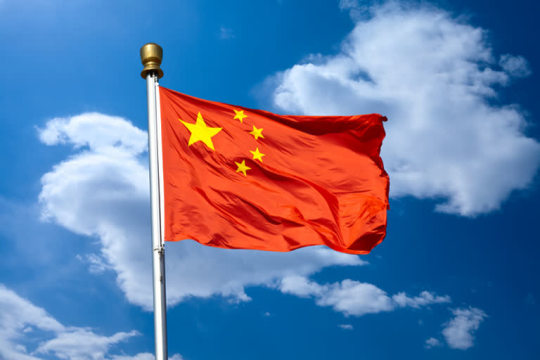
View On WordPress
0 notes
Text
With a history of short-term governments in Nepal’s 15 years of democratic progression, the current reconfiguration is no surprise, and it will be no surprise if the Maoists get back again with the Nepali Congress in months and years to come.
Power sharing, political discontent, ideological differences, underperformance, and pressure to restore Nepal to a Hindu state – a long list of reasons reportedly forced the Maoists to sever ties with the Nepali Congress. While the Nepali Congress expected the Maoist leader and current prime minister, Pushpa Kamal Dahal (also known by his nom de guerre, Prachanda) to leave the alliance, it did not expect an overnight turnaround. [...]
Dahal reportedly conveyed to the Nepali Congress chair, former Prime Minister Sher Bahadur Deuba, that external pressure forced him to join hands with CPN-UML and form a new government.
If this assertion is true, China emerges as a plausible factor, given its historical inclination toward forging alliances with leftist parties in Nepal. This notion gains credence in light of China’s past efforts, such as its unsuccessful attempt in 2020 to mediate the conflict between Oli and Dahal.
On the other hand, India has enjoyed a comfortable working relationship with the Nepali Congress and the Maoists. Although Maoists were a challenging party for New Delhi to get along with when Dahal first gained the prime minister’s seat in 2008, the two have come a long way in working together. However, the CPN-UML has advocated closer ties with the northern neighbor China; Beijing suits both their ideological requirements and their ultra-nationalistic outlook – which is primarily anti-India. [...]
India faces challenges in aligning with the Left Alliance for two key reasons. First, the energy trade between Nepal and India has grown crucial over the past couple of years. However, India strictly purchases power generated through its own investments in Nepal, refusing any power produced with Chinese involvement. With the CPN-UML now in government, Nepal may seek alterations in this arrangement despite the benefits of power trade in reducing its trade deficit with India.
Second, India stands to lose the smooth cooperation it enjoyed with the recently dissolved Maoist-Congress coalition. During the dissolved government, the Nepali Congress held the Foreign Ministry, fostering a favorable equation for India. Just last month, Foreign Minister N.P. Saud visited India for the 9th Raisina Dialogue, engaging with top Indian officials, including his counterpart, S. Jaishankar.
As concerns arise for India regarding the Left Alliance, there is also potential for shifts in the partnership between Nepal and the United States, a significant development ally. Particularly, there may be a slowdown in the implementation of the Millennium Challenge Corporation (MCC) projects. Despite facing domestic and Chinese opposition, the Nepali Parliament finally approved a $500 million MCC grant from the United States in 2022, following a five-year delay.
China perceives the MCC as a component of the U.S.-led Indo-Pacific strategy, countering its BRI. Hence Beijing aims to increase Chinese loans and subsidies to Nepal to enhance its influence.
To conclude, the re-emergence of Nepal’s Left Alliance signals a shift in power dynamics, impacting domestic politics and regional geopolitics. With China’s influence growing, Nepal’s foreign policy may tilt further toward Beijing, challenging India’s interests. This shift poses challenges for India, particularly in trade and diplomatic relations, while also affecting Nepal’s partnerships with other key players like the United States.
[[The Author,] Dr. Rishi Gupta is the assistant director of the Asia Society Policy Institute, Delhi]
6 Mar 24
229 notes
·
View notes
Text
Asian slaves, indigenous Americans, and identity in colonial era Mexico
The Spanish Philippines had a diverse slave population for local labor and export, including Filipino Indians [i.e. natives; indios], Muslim war captives (moros), and foreign slaves from as far away as Portuguese India.
… Upon their arrival, chino slaves [i.e. any Asian slave, not just Chinese] were absorbed by the urban economy of Mexico City, where they mainly worked as domestic servants or in textile mills (obrajes) … For their part, working in the city provided chinos with some possibilities for manumission. Chinos in domestic service were especially apt to embrace the limited opportunities available to them and to experience some social mobility. In the obrajes, chinos had few of the freedoms given to domestic servants, but they did benefit from government oversight of the industry. During official visits, chino slaves appealed for protection from overt exploitation by claiming that they were Indians (even if they were from Portuguese India). Remarkably, visiting inspectors listened to their complaints, and they often responded by liberating individual chinos under the assumption that they were indeed native vassals and could thus not be held in bondage. The overall experience of chinos in the viceroyal capital confirms the benefits of living close to the center of colonial power.
The presence of free indigenous immigrants from the Spanish Philippines in Mexico reinforced the idea that all chinos were Indians. The complex governing structure of colonial Mexico involved two republics or political communities (the república de indios and the república de españoles); this organization separated the indigenous majority from everyone else to facilitate the collection of tribute and the ministry of the Catholic Church … [N]ative immigrants from the Philippines purposely sought to confirm their membership in the Republic because corporate status provided personal advantages. They asked to be tallied in tribute rolls in Mexico to benefit from concomitant privileges, such as trading rights and legal representation through the General Indian Court. At the same time, free Filipinos were frequently confused with chino slaves - a situation that had serious consequences for Filipinos' relations with colonial institutions and enslaved individuals. Some immigrants resented having their indigenous identity questioned and sought to maintain a sense of their Indian-ness by keeping their distance from chino slaves. The majority, however, expressed solidarity with chino slaves. Filipino artisans, for example, took on chino slaves as apprentices and taught them marketable skills. Similarly, Filipino traders incorporated chinos into their own credit networks to facilitate self-purchase.
Individual chinos who were manumitted also embraced an Indian identity, regardless of whether they were from Goa, Macau, or other places in South and Southeast Asia. In this way, chinos challenged official attempts to define them solely as former slaves. Instead, they sought to join the free republic. The possibility for this kind of social integration caused widespread concern among slave owners. To defend their property rights, masters started to brand chino slaves on the face, rather than on the chest or arm as they did with Africans, in order to dissuade them from fleeing and "passing" as free Indians. This horrifying development shows that Indian communities welcomed runaway chino slaves and, by extension, that slave owners sought visible markers of their slaves' status.
Excerpt from the Introduction to “Asian Slaves in Colonial Mexico: From Chinos to Indians” (2014) by Tatiana Seijas
111 notes
·
View notes
Text
US’ NED ‘Mastermind’ Behind Global Separatist Riots, Color Revolutions, Political Crises: Chinese FM Report
— Global Times | May 07, 2022

US Democracy. Illustration: Liu Rui/Global Times
The National Endowment for Democracy (NED), as one of the US government's main "foot soldiers," "white gloves" and "democracy crusaders," has become the mastermind behind separatist riots, color revolutions and political crises around the world, subverting lawful governments and cultivating pro-US puppet forces under the pretext of promoting democracy, said a fact sheet released by Chinese Foreign Ministry on Saturday.

#US 🇺🇸 Democracy#US’ NED#Mastermind#Global Separatist Riots#Color Revolutions#Political Crises#National Endowment for Democracy (NED)#Democracy Crusaders#Pro-US puppet Forces#Chinese Foreign Ministry
0 notes
Text
2023: Leviev on Russia-China Summit and Tactical Nuclear Weapon Deployment Friction
The Ukrainian newspaper Korrespondent, quoting exile Russian military analyst Ruslan Leviev of the Conflict Intelligence Team. argues the Xi-Putin summit was a failure, and was ‘apparently’ shortened by a day [seen no reference to his elsewhere, perhaps Leviev has his sources?], and the Russian deployment of tactical nuclear weapons to Belarus is becoming a sore point in Russia-China…

View On WordPress
#Belarus#Chinese#Chinese-Russian#foreign ministry#PRC#press spokesperson#Putin#Russia#Russian Federation#Sino-Russian#summit#tactical nuclear weapon#Xi Jinping#中国
0 notes
Text

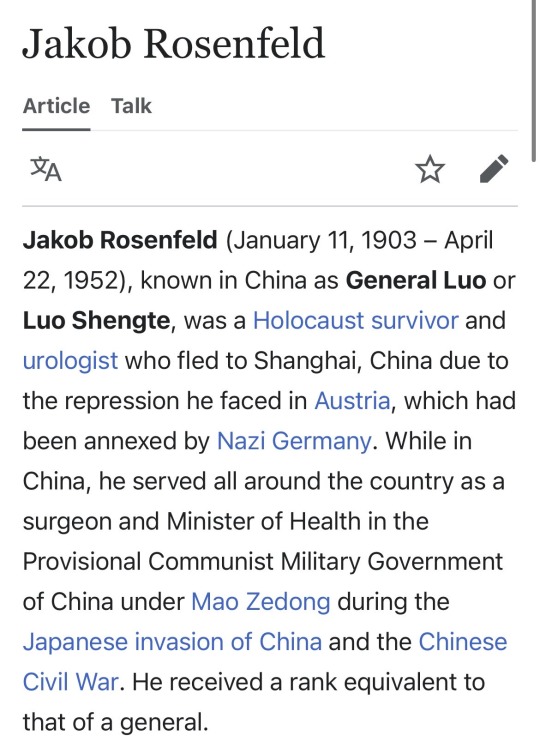
and why are israelis talking about going to china like its a threat
“Rosenfeld arrived in China with one of his brothers, but did not integrate into the Jewish community in the city. His political leanings led him to seek out the local Communists, as did a small group of other Jews. The latter included the reporter, Hans Shippe, who greatly influenced Rosenfeld’s views, and the Jewish-Austrian physician, Richard Frey, who had experiences similar to those of Rosenfeld. The Chinese Foreign Ministry website, which provides added proof of the country’s great respect for Rosenfeld, posted an article that quotes him as saying that he did not come to China to lead a comfortable life, but that he came to join the revolution. And he did in fact do that.
[…] The Chinese Communists considered Rosenfeld one of their own. He was close to the highest-ranking officials in the party, including Liu Shaoqi, who would later become the President of the People’s Republic of China after Mao Zedong’s death, and to Mao himself. He also forged a deep friendship with the Communist commander, Chen Yi, who would later go on to become the Mayor of Shanghai and Foreign Minister of China. The two shared a love of literature and poetry, took hikes together, and had long conversations in French. Chen Yi also wrote poetry, and an anthology of his writings includes a “Letter to Comrade Rosenfeld,” in which Chen Yi supports the decision made by his friend, the European doctor, to join the struggle of the People’s Army of China.
Rosenfeld believed that the Communist Party would free the Chinese people from both the Japanese invaders and the Kuomintang. In 1942, he became a member of the Chinese Communist Party, and he is still considered a national hero in China.
At the end of 1949, after the People’s Republic of China was founded, Rosenfeld decided to return to Vienna. His Chinese friends advised him to remain in China, claiming that Europe no longer had a place for him. But Rosenfeld wanted look for relatives who had survived the Holocaust. At a farewell dinner held for him before going back to Austria, Chen Yi spoke about his friend’s huge contribution to the revolution and awarded him a badge of merit.
After a short time in Austria, Rosenfeld tried unsuccessfully to return to China. He also tried to emigrate to the United States, but was denied a visa due to his ties with Communist China. In 1951, he moved to Israel, settled in Tel Aviv, and worked at Assuta Hospital. It appears that he was actually waiting for a visa to return to China, but within less than a year he died of a heart attack at the age of only 49.”
and he didnt even want to move to israel. zionism and its alliance with antisemitic movements (like american anticommunism) is the negation of the diaspora. slightly tangential to this post but the red scare disproportionately targeted jewish americans. post war us jewish institutional leaders choose to move to the right in their dedication to israel and support for the us government, betraying socialist and anti zionist american jews
150 notes
·
View notes
Text
CHINA WILLING TO HELP SRI LANKA DEAL WITH DEBT BURDEN
China is willing to play an active role in helping Sri Lanka deal with its debt burden along with other countries and international organizations, Foreign Ministry spokesperson Zhao Lijian said at a regular press conference on Wednesday.Sri Lankan President Gotabaya Rajapaksa recently said in an interview that, “China appears to be shifting its strategic focus toward Southeast Asia and Africa,…

View On WordPress
#Asia#China#Chinese Foreign Ministry spokesperson Zhao Lijian#Chinese President Xi#Economic crisis#Sri Lankan#Sri Lankan debt burden#Sri Lankan President Gotabaya Rajapaksa
0 notes
Text
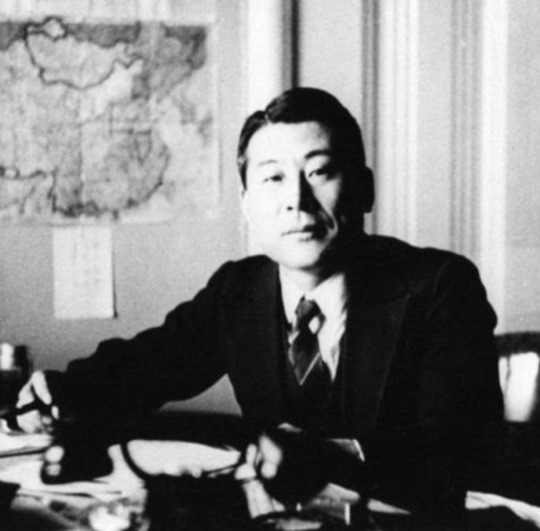
Chiune Sugihara was a Japanese diplomat in Lithuania who put his family and career at risk by issuing thousands of hand-written transit visas to Jewish refugees fleeing Eastern Europe.
Chiune was born to a middle class family in Mino, Japan on the first day of the 20th century – 1/1/00. In elementary and high school he was a top student, and his father wanted him to become a doctor. Chiune’s own dream was to enter the foreign service, and he deliberately failed the medical school entrance exam by writing only his name on the test. Instead Chiune attended Waseda University and majored in English. He also joined a Christian fraternity to practice his English.
In 1919, Chiune passed the Foreign Ministry Scholarship exam, and served in the Japanese Imperial Army as a 2nd Lieutenant stationed in Korea. He resigned his commission in 1922 and trained for the Foreign Ministry, learning Russian and German in addition to English. He aced the qualifying exam and was sent to work in the foreign office in Harbin, China.
Chiune’s strong moral compass led him to resign his post as Deputy Foreign Minister in Manchuria because of rising Japanese violence against the Chinese (just two years later was the horrific Rape of Nanking by the Japanese Imperial Army.) Chiune returned to Japan, where he married Yukiko Kikuchi. They later had four sons.
Next Chiune went to Helsinki, Finland, where he worked as a translator for the Japanese delegation. In 1939, Chiune became vice-consul of the Japanese embassy in Kauna, Lithuania. Part of his job was to find out if Germany planned to attack the Soviet Union, and to relay any information about this to his bosses in Berlin and Tokyo.
In 1940, the Soviet Union occupied Lithuania. At that time, approximately 1/3 of Lithuanians were Jewish, many of them Torah scholars. The USSR viciously persecuted Jews, especially religious ones, and the Jews of Lithuania were desperate to escape the country – especially because Nazi Germany was occupying more and more of Eastern Europe and would soon be in Lithuania. Hundreds of them, mostly Orthodox, visited the Japanese consulate to beg for exit visas to Japan. The official Japanese policy was that candidates for visas must go through elaborate bureaucratic procedures and pay significant sums of money. Chiune contacted his superiors at the Japanese Foreign minister to ask if the rules could be relaxed to help Jewish refugees. His request was denied, as were his next two requests.
Chiune could have thrown up his hands and told the Jews there was nothing he could do for them, but instead, as he did in China, he was governed by his strong sense of right and wrong, rather than soulless bureaucrats. He ignored his orders and started issuing ten-day visas for Jews to travel through Japan on their way to safe havens like Shanghai, China, where 20,000 Jews rode out the war safely.
As word got out about the Japanese visas, Jews from all over Lithuania as well as Poland began to swarm Chiune’s office. He simply wouldn’t say no to anybody, and spent 18-20 hours a day (!) painstakingly writing visas by hand. He created a month’s supply of visas every single day from August to early September 1940, providing an escape route for thousands of Jews. On September 4, the Japanese consulate in Kauna was closed and Chiune had to leave the country. He was determined to create as many transit visas as possible, and continued doing so up until the last minute. At Kanuas Railway Station, a crowd of Jews gathered to say goodbye. Right before boarding the train, Chiune bowed deeply and cried out, “Please forgive me! I cannot write anymore. I wish you the best!” Someone in the crowd shouted, “Sugihara! We’ll never forget you! I’ll surely see you again!”
Chiune was reassigned to East Prussia, then Prague, and then Bucharest, Romania. When the Soviet Union occupied Lithuania in 1944, Chiune and his family were imprisoned in a POW camp for a year and a half. Finally they were released in 1946 and returned to Japan, but the foreign office had heard about his unauthorized visas, and he was forced to resign. At about this time, the Sugihara’s youngest son died of leukemia at age seven.
Unemployable in Japan, Chiune made use of his excellent Russian language skills and spent the next 16 years working in the Soviet Union while his wife and sons stayed in Japan. Chiune’s exceptional heroism was unknown for many years, until 1968, when he was contacted by Yehoshua Nishri, an attache working at the Israeli consulate in Tokyo. Nishri spent his youth in Poland, and heard stories of the legendary Japanese hero. Nishri made it his mission to publicize Chiune’s heroic acts, and the next year, 1969, Chiune traveled to Israel as an honored guest of the Israeli government. Jews he’d saved lobbied for him to be recognized as Righteous Among the Nations by Israeli Holocaust Memorial Yad Vashem, and in 1984 he received the honor. At that time he was too sick to travel, so his wife and son Nobuki accepted the award on his behalf.
Chiune was asked why he risked everything to help thousands of strangers. He answered, “You want to know about my motivation, don’t you? Well. It is the kind of sentiments anyone would have when he actually sees refugees face to face, begging with tears in their eyes. He just cannot help but sympathize with them. Among the refugees were the elderly and women. They were so desperate that they went so far as to kiss my shoes. Yes, I actually witnessed such scenes with my own eyes. Also, I felt at that time, that the Japanese government did not have any uniform opinion in Tokyo. Some Japanese military leaders were just scared because of the pressure from the Nazis; while other officials in the Home Ministry were simply ambivalent. People in Tokyo were not united. I felt it silly to deal with them. So, I made up my mind not to wait for their reply. I knew that somebody would surely complain about me in the future. But, I myself thought this would be the right thing to do. There is nothing wrong in saving many people’s lives… The spirit of humanity, philanthropy… neighborly friendship… with this spirit, I ventured to do what I did, confronting this most difficult situation – and because of this reason, I went ahead with redoubled courage.”
Chiune Sugihara died in Japan on July 31, 1986. Despite being a hero in Israel, and among Jews worldwide, he was completely unknown in his own country. Even his own children didn’t know what he had done. A huge delegation from around the world attended Chiune’s funeral, and only then did he become known in Japan.
Chiune received many awards and accolades, most of them posthumous. Among them are Sugihara Streets in Vilna, Lithuania, and Jaffa and Netanya in Israel. There is a Sugihara House Museum in Kaunas, and a park in Vilna where 200 trees were planted on his 100th birthday. There is a life-sized statue of him in Little Tokyo in Los Angeles, featuring a plaque with a quotation from the Talmud, “He who saves one life, saves an entire world.” In 1998, Chiune’s widow Yukiko traveled to Israel and was warmly received by survivors who’d been saved by her husband. There is a Sugihara park in Jerusalem, and he was featured on an Israeli postage stamp in 1998. The Lithuanian government declared 2020 “The Year of Chiune Sugihara.” He has been the subject of multiple works of art, including books, films and a play.
It’s estimated that over 100,000 people are alive today because of the brave actions of Chiune Sugihara.
108 notes
·
View notes
Text
Chinese Foreign Ministry official addresses the International Court of Justice in the case challenging the legality of the Israeli occupation of Palestine.
#palestine#gaza#free palestine#israel#icj genocide case#icj case#jerusalem#icj#i stand with palestine#فلسطين#free gaza#israel is a terrorist state#israeli war crimes#unga#israeli terrorism#israelis are terrorists#israel is committing genocide#israel is a war criminal#israeli occupation
56 notes
·
View notes